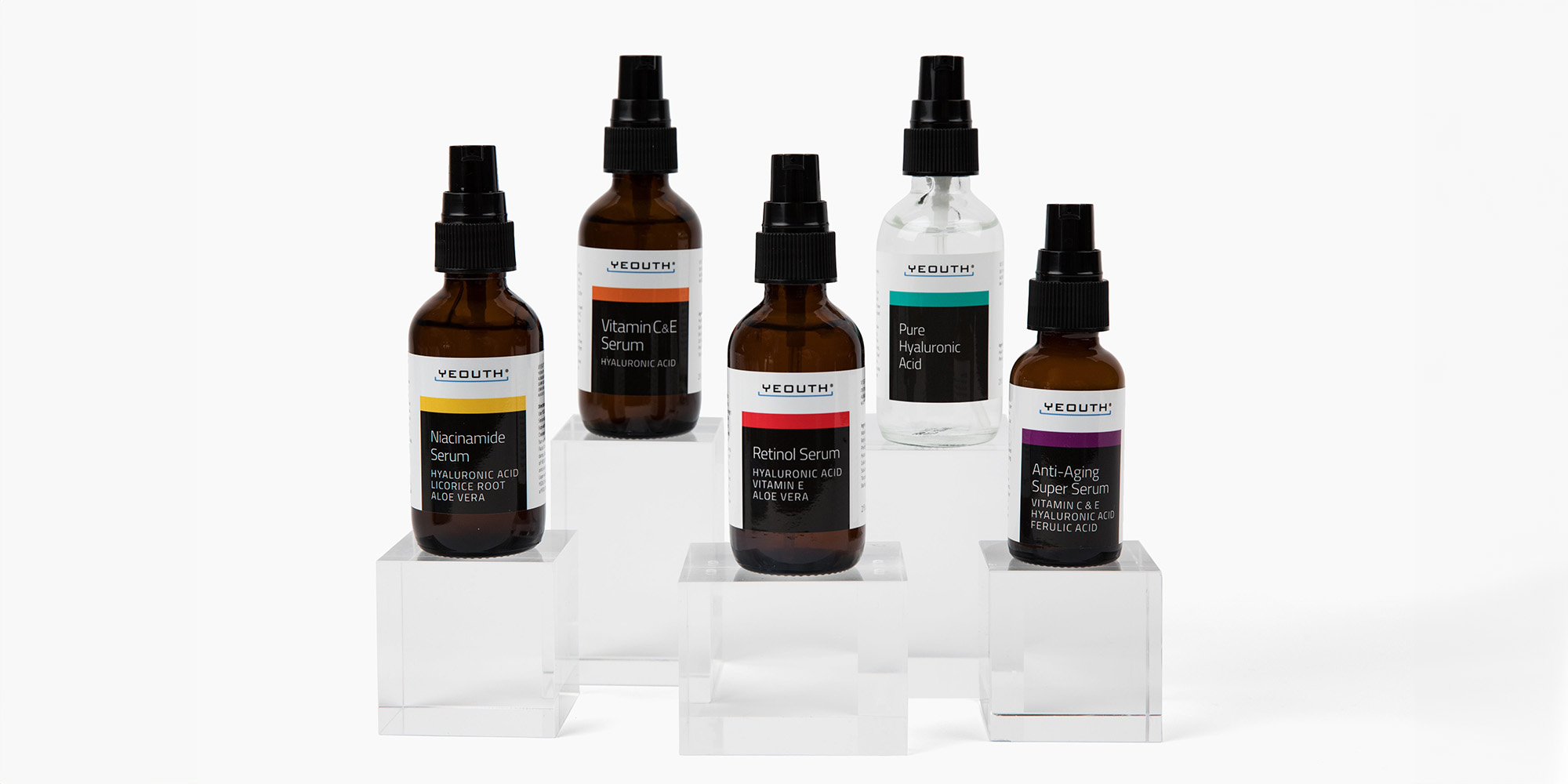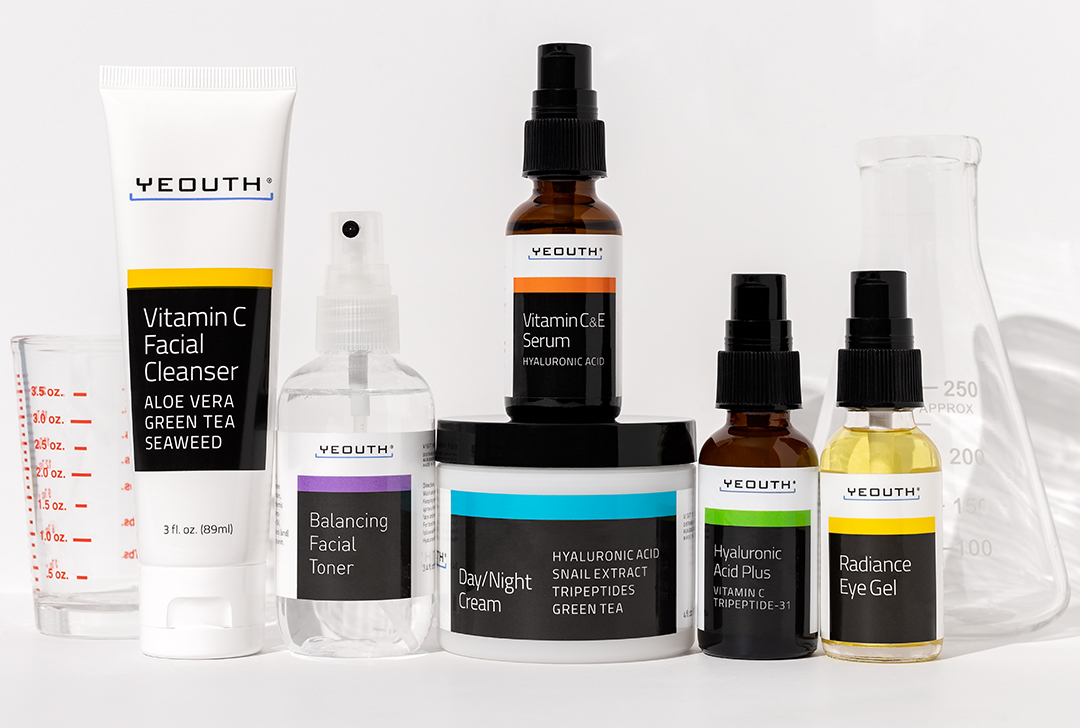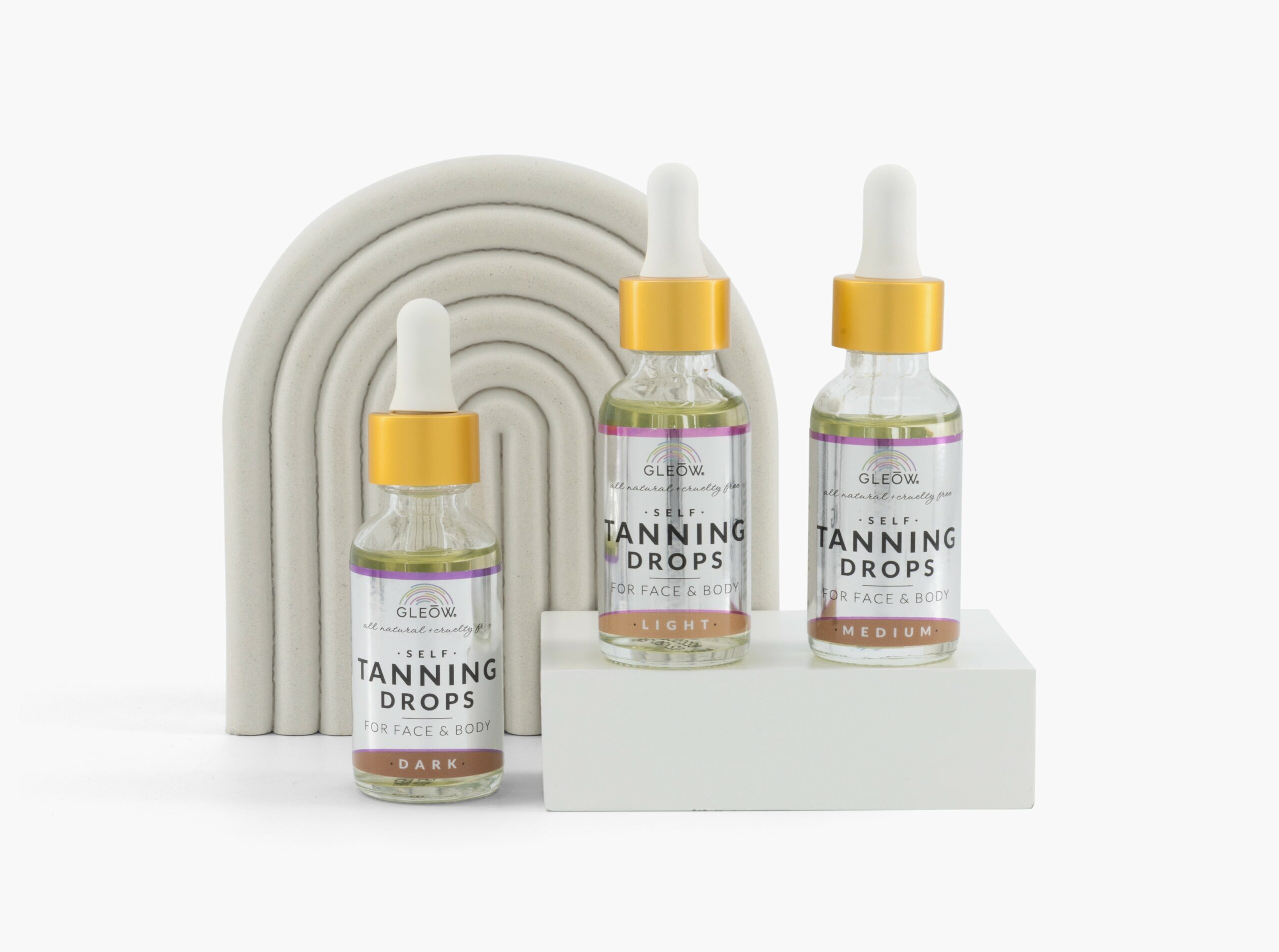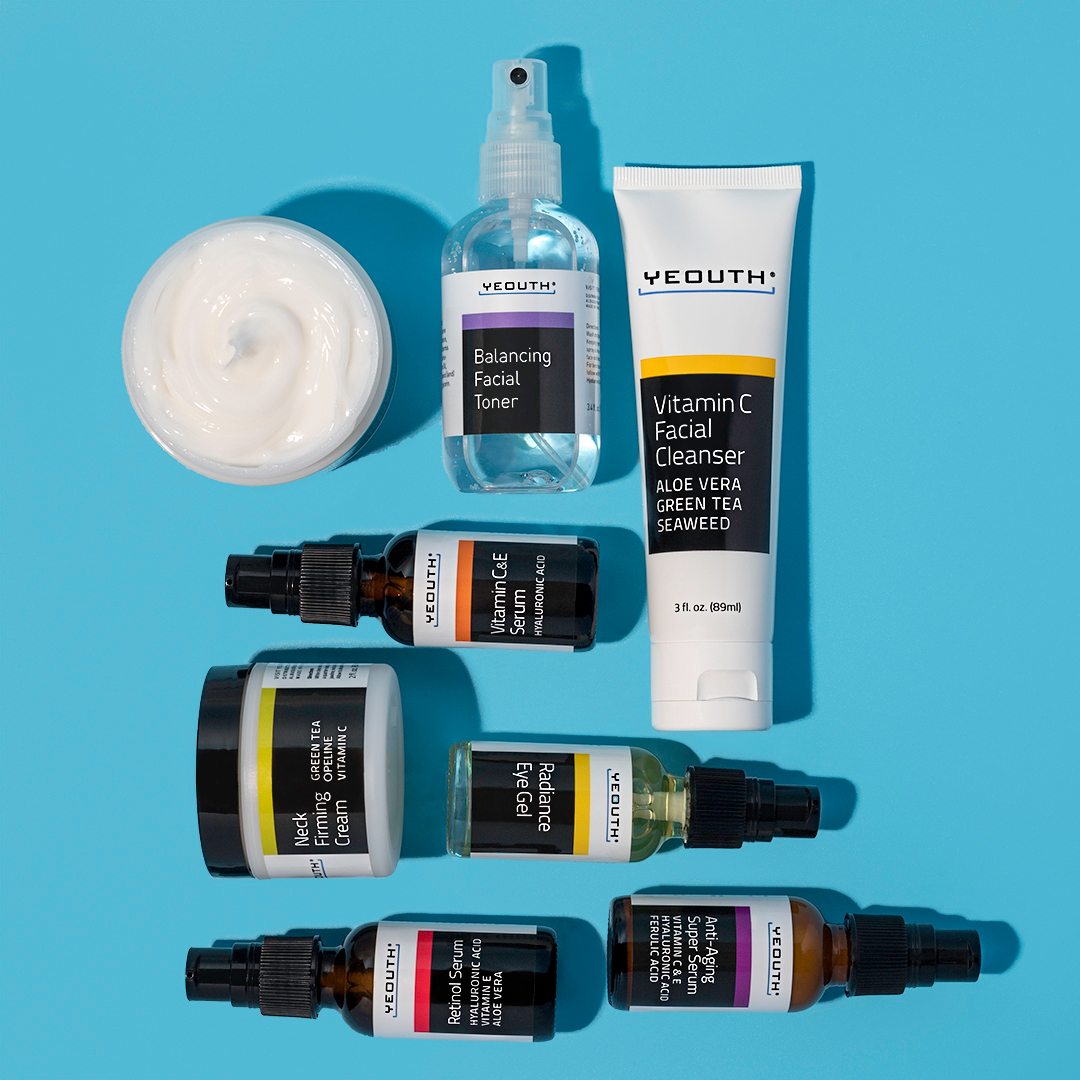
Yeouth Parent Company Kevgo Is Diversifying Its Amazon Presence And Looking To Retail
In 2014, personal care manufacturer Formulab was at a crossroads. Burnt out from producing merchandise for companies with exasperating demands, founder and cosmetic chemist Kevin Mallory was eager to take it in a new direction.
“A venture capitalist or some other investment would come in, and instead of us getting paid in 30 days, they start paying us in 60 days, 90 days, 180 days,” recounts Mallory, owner of Formulab parent company Kevgo. “And, if we were going to keep the business with them, we had to lower the cost of the products just over and over and over, and then invariably they would start wondering why they’re losing shelf space. People are not buying their products. It becomes too much of just a pure numbers thing and not thinking about what your product is to people and how they enjoy it or not.”
Mallory, who entered the beauty industry in 1989 with a pet grooming brand called Groomer’s Ace, decided he’d had enough. He stopped manufacturing for third-party companies, a move he estimates led to Formulab losing a few million dollars’ worth of orders, and launched his own brand, Yeouth, on Amazon in 2015. At a time in which people began searching Amazon’s selection for ingredient-powered skincare, it assembled a repertoire of ingredient-centered products such as Pure Hyaluronic Acid, Retinol Serum and Vitamin C&E Serum. In its first year, it achieved $1 million in sales, according to Mallory.

“It was the Wild West on Amazon,” he says. “To generate awareness of the product, we did a lot of Facebook advertising and then drove traffic to Amazon, and Amazon loves it when you drive in outside traffic. So, that really helped us rank well for the keywords that we were doing for our initial products. Once we offered specials to get people to try our products, a high percentage of them returned and would keep purchasing. That’s really how it grew quickly.” Yeouth’s products have notched a 25% to 35% customer return rate.
Today, Kevgo is at a crossroads. Amazon isn’t quite the Wild West it once was. Brands have poured into it to chase beauty shoppers, and the cost of selling on Amazon has increased. “When we started out, we were probably giving Amazon 30% of the revenue,” says Mallory. “Now, it’s over 50%, and then that doesn’t even include the fact that, to stay up in the rankings, you’ve got to spend a lot on advertising on and off of Amazon. So, all those things really just start eroding your margin.”
“When we started out, we were probably giving Amazon 30% of the revenue. Now, it’s over 50%.”
Kevgo must adjust to the current reality on Amazon. It’s adapting by implementing two strategies: diversifying Kevgo’s Amazon presence and pursuing retail distribution. The former strategy is further along than the latter strategy. In March, Kevgo introduced a second brand on Amazon, Gleow, with star product Self Tanning Drops. Yeouth’s demographic sweet spot is women in their thirties to fifties, and Gleow skews younger in response to a trend picked up on by Kevgo of younger consumers seeking anti-aging products.
Mallory explains that the tanning “category is really growing. And, if you think about it, with aging, one of the most detrimental things to us is sun damage. So, if you can give yourself a tan without having the sun damage, you’re avoiding premature aging later. It’s towards the younger people that are looking at, how do I avoid all the problems later instead of trying to address the problems later?”

On Gleow’s website, its Self Tanning Drops product is priced at $34.95 for a 1-oz. size. By contrast, on Yeouth’s site, Pure Hyaluronic Acid is $17.95 for a 1-oz. size. Mallory projects Gleow can match Yeouth’s first-year sales performance on Amazon and yield as much as $1 million in sales. Overall, he says Kevgo has attained $9 million in annual sales. The company has 20 employees dedicated to its manufacturing facility and 20 to 30 dedicated to managing Amazon. At the end of the year, it expects to unveil a third Amazon brand.
Mallory describes the third brand as a “no brand brand.” He says it’s “looking at specific things that are good opportunities on Amazon, and we don’t want to have to have it be all one brand because each different product may need a different look to be successful. So, it’s a brand of whatever we need to do for each opportunity rather than sticking with a certain font or color or logo.” He adds the “no brand brand” is akin to “having an unlimited number of brands. I can go compete with any brand that I want to with that.”
“Look at our reviews, and they speak for themselves. Our Retinol Serum is about to hit 15,000 reviews.”
Meanwhile, Kevgo is erecting infrastructure to build retail distribution. Internally, managing director Mikala King, who was formerly at fragrance consultancy Ann Gottleib Associates, is handling retail outreach. Externally, Kevgo has partnered with retail brokerage J. White & Associates and beauty product representative agency ColemanHarrison for retail outreach. It’s also been shoring up its product design to fit retail by, for example, repackaging products in jars into tubes.
Mallory elaborates, “What’s really different on Amazon is I have a lot of text where I can describe what’s in our product, how it works, why it’s good. When you’re looking at a shelf, it’s hard to convey that same message, so that’s part of why we have to switch how we package things to be able to better communicate from the shelf to a person…We’re making the products look sexier because, in the initial days, we were putting them in jars, and we were just competing on volume with other sellers on Amazon, but now we’re very sexy, too, with nice applicators and a very sexy box. That’s what we need to do to get someone’s interest.”

But getting someone’s interest isn’t only about packaging. Mallory and King emphasize Kevgo’s Amazon footprint and formulas can set it apart at retail. King says, “Look at our reviews, and they speak for themselves. Our Retinol Serum is about to hit 15,000 reviews. That is validation for how strong of a brand we are. I think the struggle right now is working with these retailers who are a little unsure of how to take a big brand from Amazon and put it in their environment to be successful. So, it’s about trying to find a middle ground of what appeals to the retailers versus what appeals on Amazon.”
Brands have been navigating that middle ground, and several have traveled from Amazon to stores. Wild Willies and LilyAna Naturals have gone from early Amazon availability to retailers such as Walmart, Target and CVS. Hero Cosmetics may be the most prominent illustration of a brand fruitfully transitioning from Amazon to massive chains. Acquired by consumer goods conglomerate Church & Dwight last year for $630 million, its hero product The Mighty Patch popped up on Amazon before spreading across retailers, including Target, Ulta Beauty, Walmart and CVS.
Mallory believes what appeals to retailers is differentiated formulas—and he vows Kevgo will deliver them. “If I have a retinol serum, how many other people already have a retinol serum? I can tell you all day long that our quality is better, but will the consumer really be able to notice that?” he asks. “Some of the innovation we’re going for is things that are undeniable. We’ve got a patent on an instant wrinkle concealer, and within a couple minutes, you see the results. You can’t deny the product. So, that that’s something that’s going to open doors for us.”





Leave a Reply
You must be logged in to post a comment.